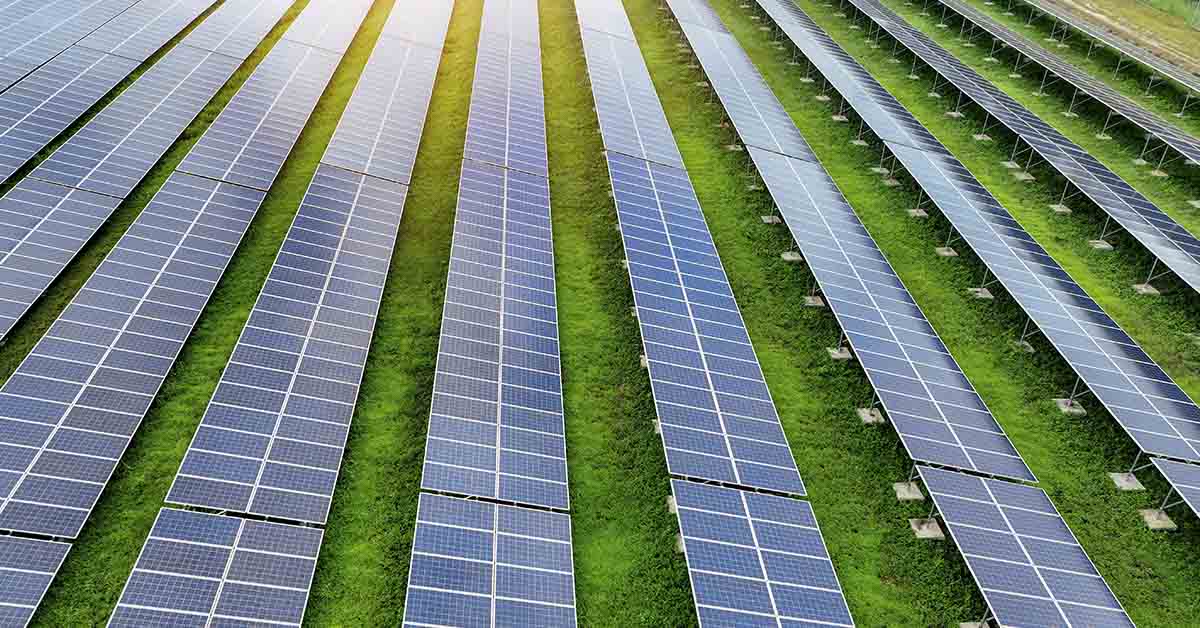Farmers are embracing a new trend called agrivoltaics. This innovative practice combines solar panels with raising animals or crops in the same area. In the U.S., thousands of sheep now graze under these panels, experiencing positive changes that have surprised many. Known as solar grazing or solar farming, this approach reduces heat stress and improves pasture quality. As it becomes more popular, it offers a glimpse into the future. Let’s explore how solar energy and agriculture cohabitation are changing farming practices and supporting healthier animals and better land use.
Sheep’s New Hangout
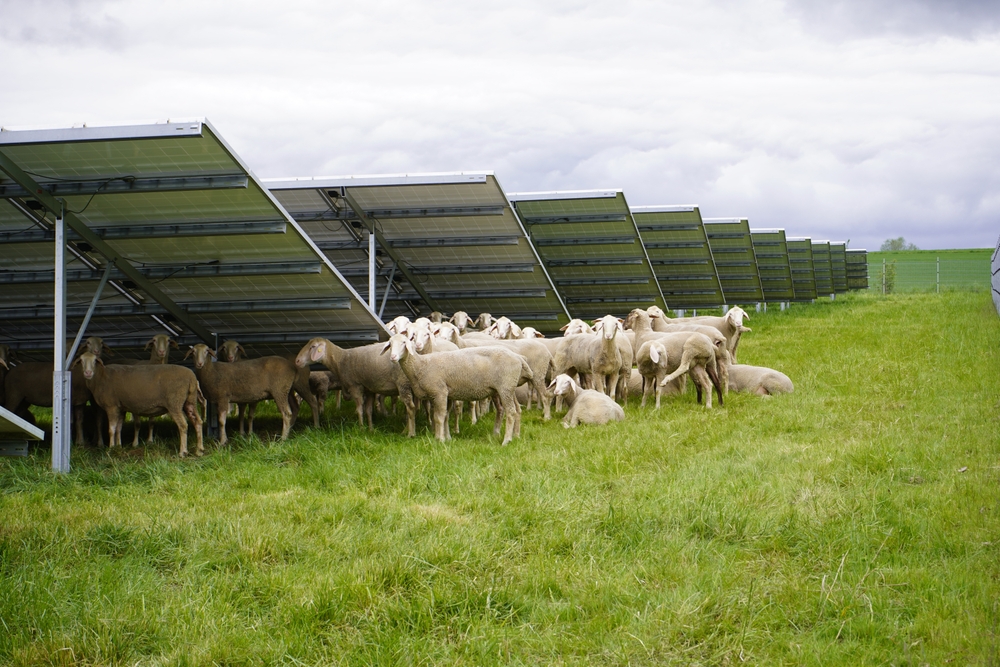
Under the gleaming panels of these projects, sheep find the perfect shelter. They graze in the cool shade, protected from the sun and wind. This unique mix of solar farming and livestock care gives them a more comfortable and safe spot. Meanwhile, the animals enjoy a cozy area that feels secure in any weather. As a result, farmers see benefits too, with less stress on their flocks. Clearly, this blend of farming under solar panels and animal welfare creates harmony in the fields. It’s a modern approach that values both animal comfort and farm sustainability.
Heat Stress Relief
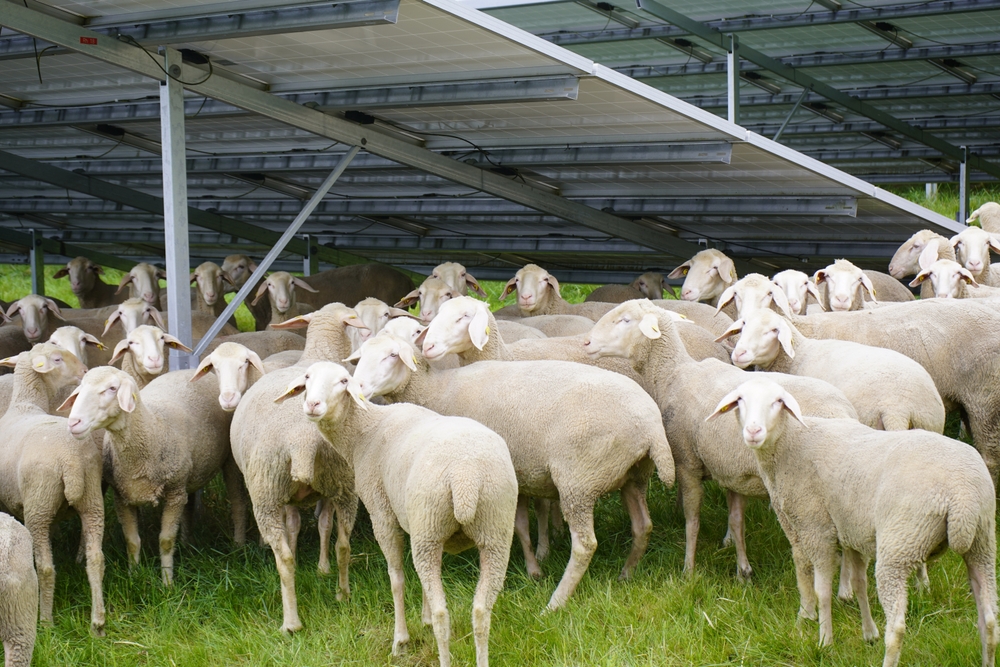
The panels do more than provide shade for the sheep. They also help them feel cooler on hot summer days by blocking direct sunlight. As a result, this reduces heat stress, allowing the animals to graze and rest comfortably. Healthier sheep mean fewer health problems and less strain on farmers. Indeed, solar grazing creates a calm environment that supports animal welfare. This practical approach shows how agrivoltaics can create real benefits for livestock and people. Overall, small changes in land use can bring big rewards for farms and the environment.
Weight Gain Surprise
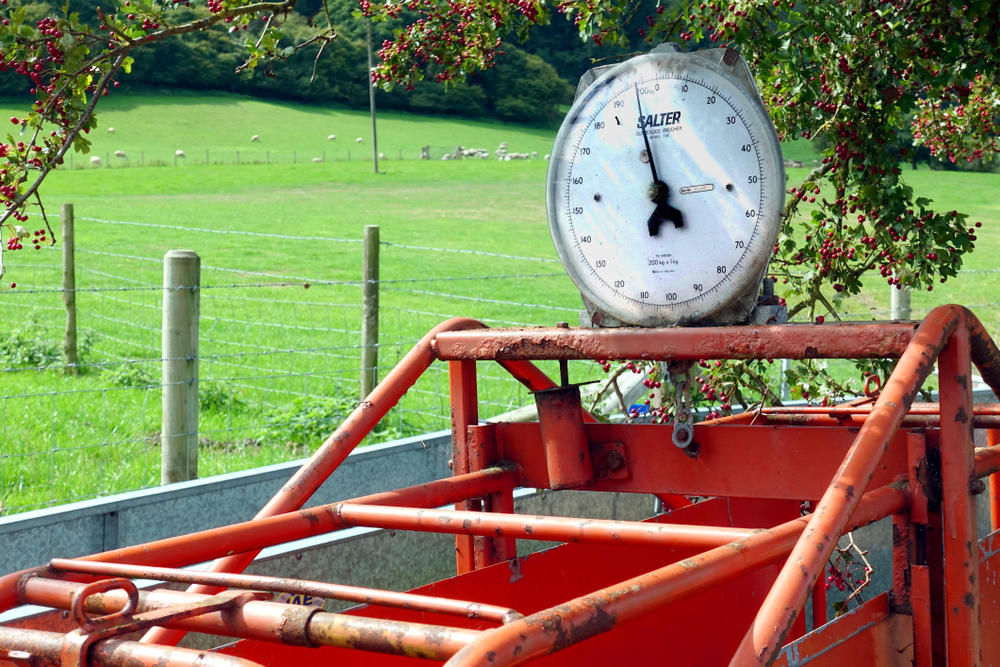
Farmers noticed that sheep under the panels put on weight faster than those in open fields. The cool shade makes them eat more and rest better. In addition, the improved grass under these panels boosts their nutrition. Solar farming supports both the animals and the land. Healthier sheep mean better meat and wool production, which boosts farm income. Ultimately, this shows how solar energy and agriculture cohabitation helps farms thrive. When animals are comfortable and well-fed, everyone wins, from farmers to the environment.
Better Pasture Quality
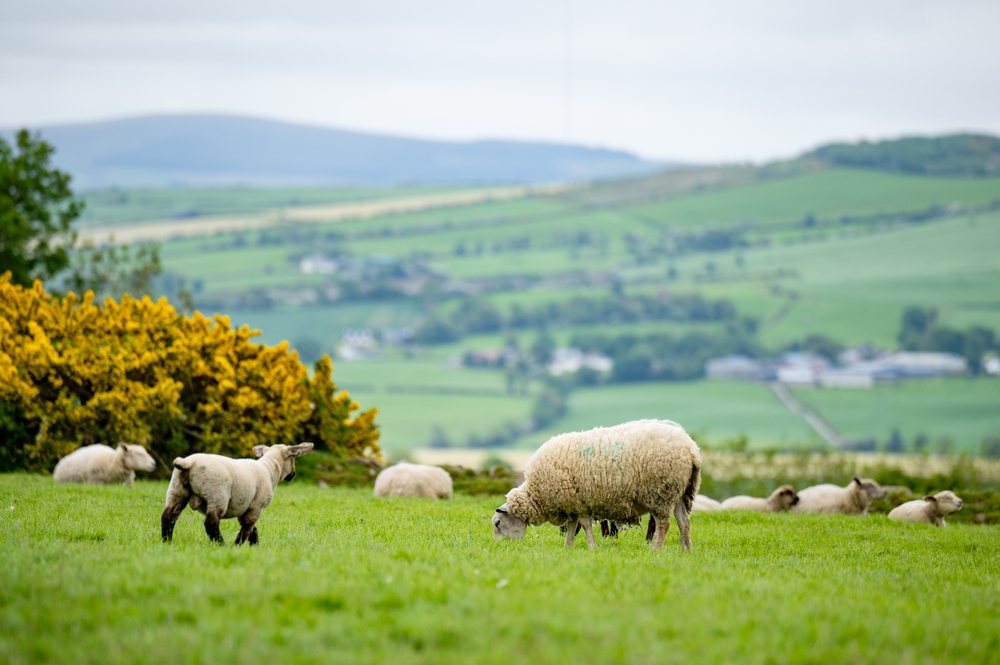
The panels protect the grass from harsh sun, helping the soil keep its moisture. As a result, thicker and greener grass lasts longer, even in dry weather. Healthier grass means better nutrition for the sheep and less work for farmers. Agrivoltaics is a smart way to use the land wisely. Furthermore, it creates a cycle of healthier animals, richer pastures, and happier farmers. In the end, it shows that working with nature can be the best choice for sustainability.
Boosting Farm Profits
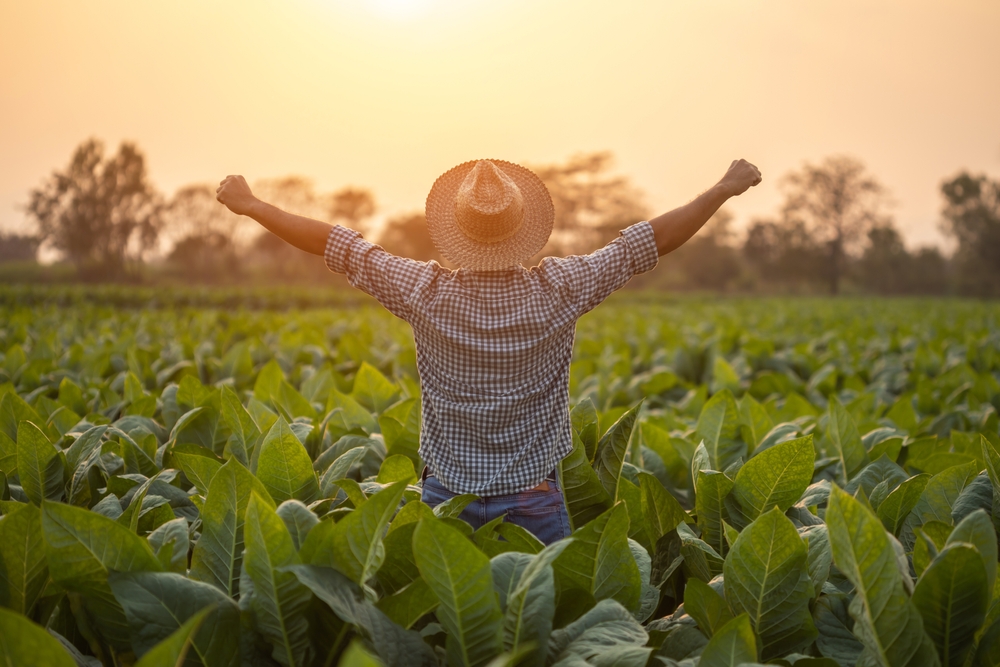
Combining solar panels with sheep grazing offers two income streams for farmers. They can sell electricity generated by the panels and also earn from raising livestock. This dual setup creates a buffer when challenges arise. For instance, if one part of the farm struggles, the other part can help keep things steady. It helps to builds security and peace of mind for farmers. Additionally, it’s a clever way to make the most of the land while meeting modern challenges. Solar farming proves that smart ideas can lead to real financial success.
Climate-Resilient Farming
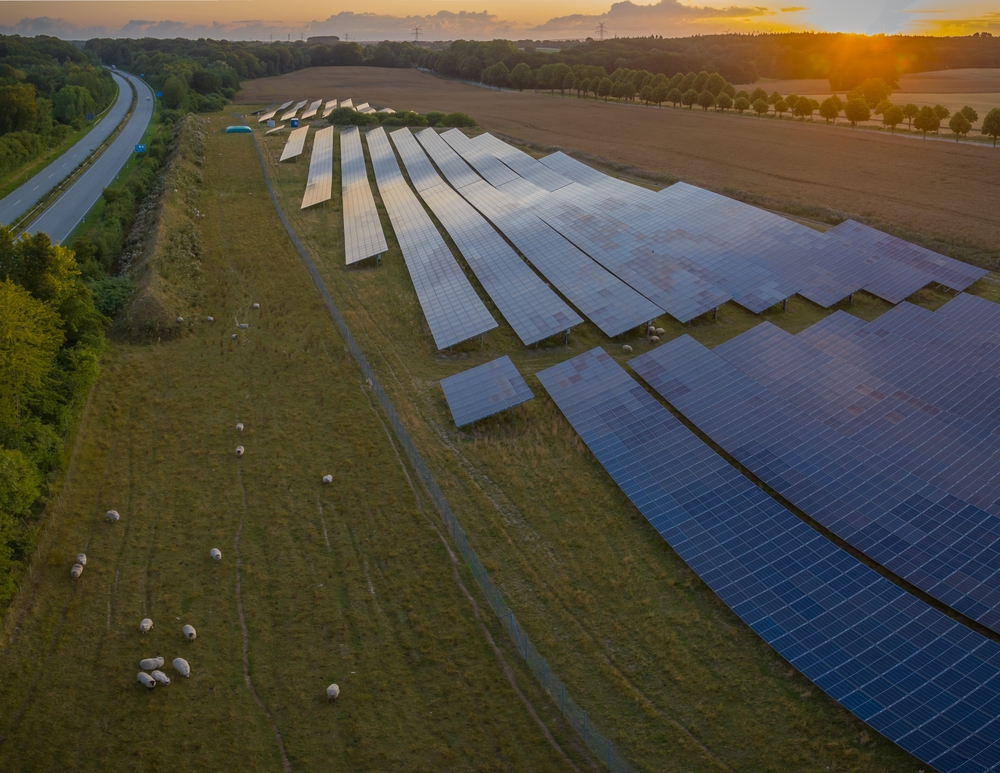
As the climate changes, this new approach helps farmers adapt. The panels create a small climate zone that shields sheep and grass from extreme heat and heavy rain. Moreover, less water evaporates from the soil, keeping the pasture healthier for longer. Agrivoltaics means more resilient animals and crops. It also makes the farm more efficient and ready to handle future climate stress. Ultimately, this approach shows that solar energy and agriculture cohabitation can strengthen farms in a warming world.
Read More: Glasgow Student Shines with Award-Winning Solar Blanket Design
A Cleaner Energy Source
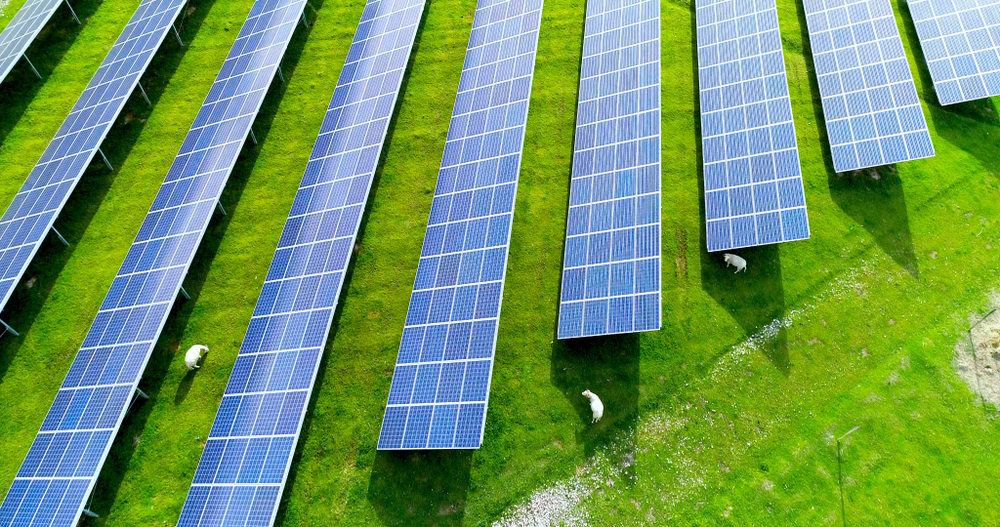
The panels do more than support livestock; they also generate clean electricity. This clean power reduces greenhouse gas emissions and helps fight climate change. As a result, solar farming creates a healthier environment and a more sustainable food system. Farms that adopt this system show it’s possible to care for animals and produce clean energy. Bringing food and energy together in one place shows what’s possible when technology and tradition work side by side. Overall, this is farming for the future, with a focus on care and conservation.
Inspiring Global Change
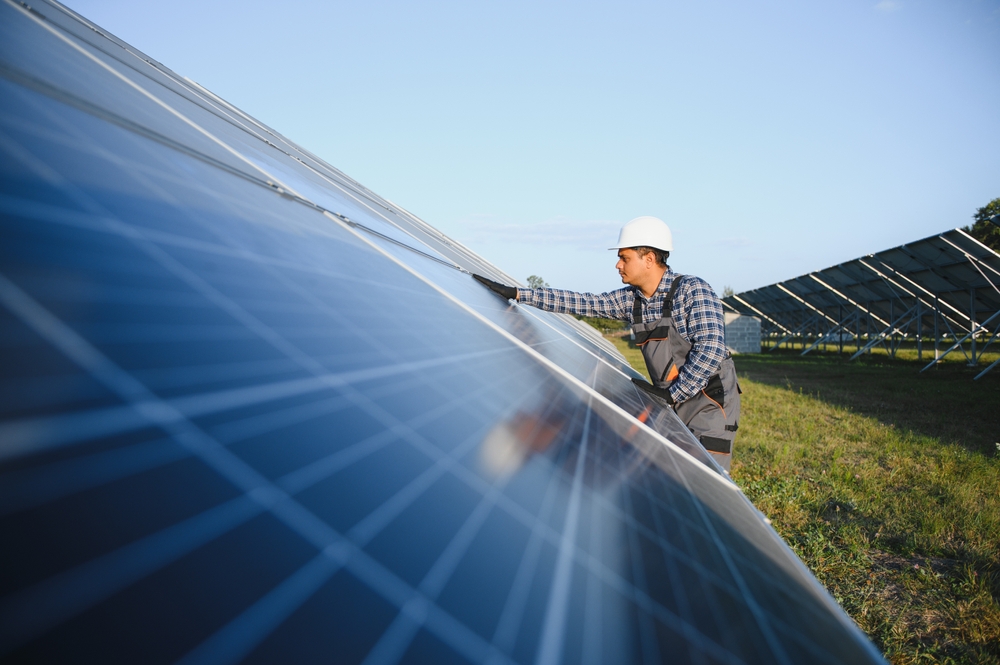
The success of these farms is catching the attention of many countries. Others see how solar grazing improves animal welfare and boosts food security. As a result, they’re starting similar projects to protect the environment and support rural communities. Solar farming proves that modern tools and traditional farming can work together. Furthermore, it’s inspiring people to think bigger about how to feed and power the world. This new way of working the land is more than a trend, it’s a practical step toward sustainable farming everywhere.
The Future of Farming
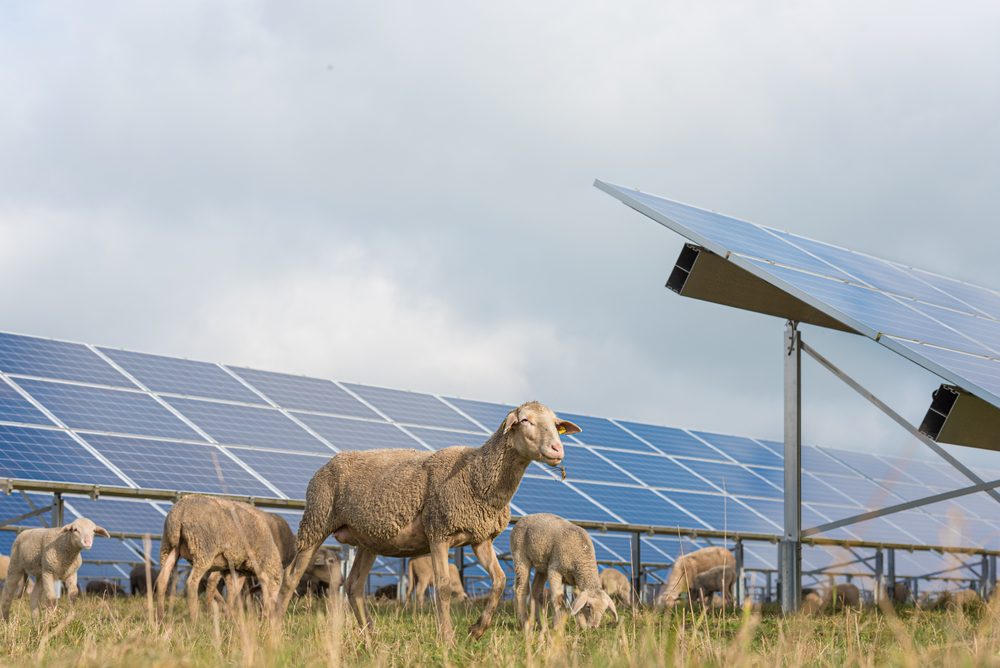
Solar grazing shows how farming can change for the better. Healthier animals, better pastures, and clean energy all come together in this system. Agrivoltaics combines old wisdom and new technology to create a better future. Moreover, it highlights how even small shifts can make a big difference. These projects are more than just interesting; they’re showing the way forward for resilient and productive farms. The future of farming looks brighter when we work with the sun and the land.
Final Thoughts
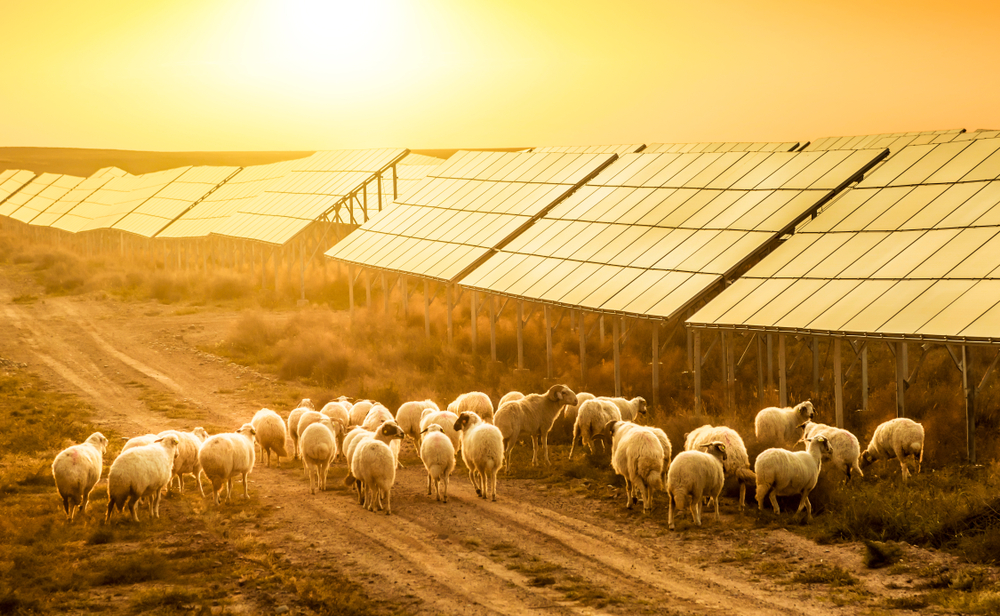
This new approach with Agrivoltaics keeps sheep healthy, helps grass grow, and generates clean power at the same time. Farmers who adopt solar grazing see real, lasting benefits. Its not just a concept, it’s a working solution that meets today’s challenges. It creates healthier pastures, better animal welfare, and a cleaner energy future. Ultimately, this story proves that small changes in how we use farmland can have a big impact on our world. The future of farming is taking shape right now, with every sheep and every panel working together.
Read More: Watch: Entire Mountain Range in China Turned into a Sea of Solar Panels
